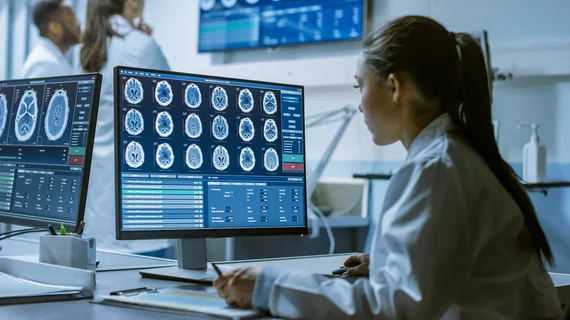FDA approves AI analysis of high-grade gliomas
An AI startup in the neuro-oncology space has received the government’s go-ahead to market software for analyzing certain fast-growing brain tumors on MRI.
Neosoma, based in Groton, Mass., says the newly FDA-cleared offering will help tumor care teams guide care of patients with, specifically, high-grade gliomas (HGGs).
These tumors of the glial cells grow fast and spread to tissue in the brain and spinal cord.
Neosoma’s product, Neosoma HGG, uses algorithms to rapidly aid and inform treatment decisions.
The company says performance metrics it submitted to the FDA showed the software besting expert neuroradiologists, topping 95% accuracy with tumor volume measurement at various chronological milestones.
The system tracks HGG patients over time as it also segments the tumors and generates images for 3D geometric analysis.
In an announcement posted Sept. 29, Neosoma quotes neurosurgeon Isabelle Germano, MD, MBA, of Mount Sinai Medical Center.
“Clinicians commonly debate the results of brain MRIs and whether the brain tumor is stable, responding to treatment or progressing,” Germano says. “Neosoma HGG will give us the objectivity needed to make our decisions easier and more accurately.”
The company also obtained remarks from neuro-oncologist Roger Stupp, MD, of Northwestern University.
Stupp says the software “will give us a novel tool allowing for comprehensive longitudinal monitoring and understanding of brain tumors, assist in our decision making, and will be a valuable part of our clinical practice.”
Neosoma says the HGG product operates with the company’s proprietary Neosoma Clinical Management Software Platform, “allowing the multi-disciplinary physician team to more effectively centralize clinical data, plan and track patient care, and significantly increase efficiency.”
Full announcement here.

